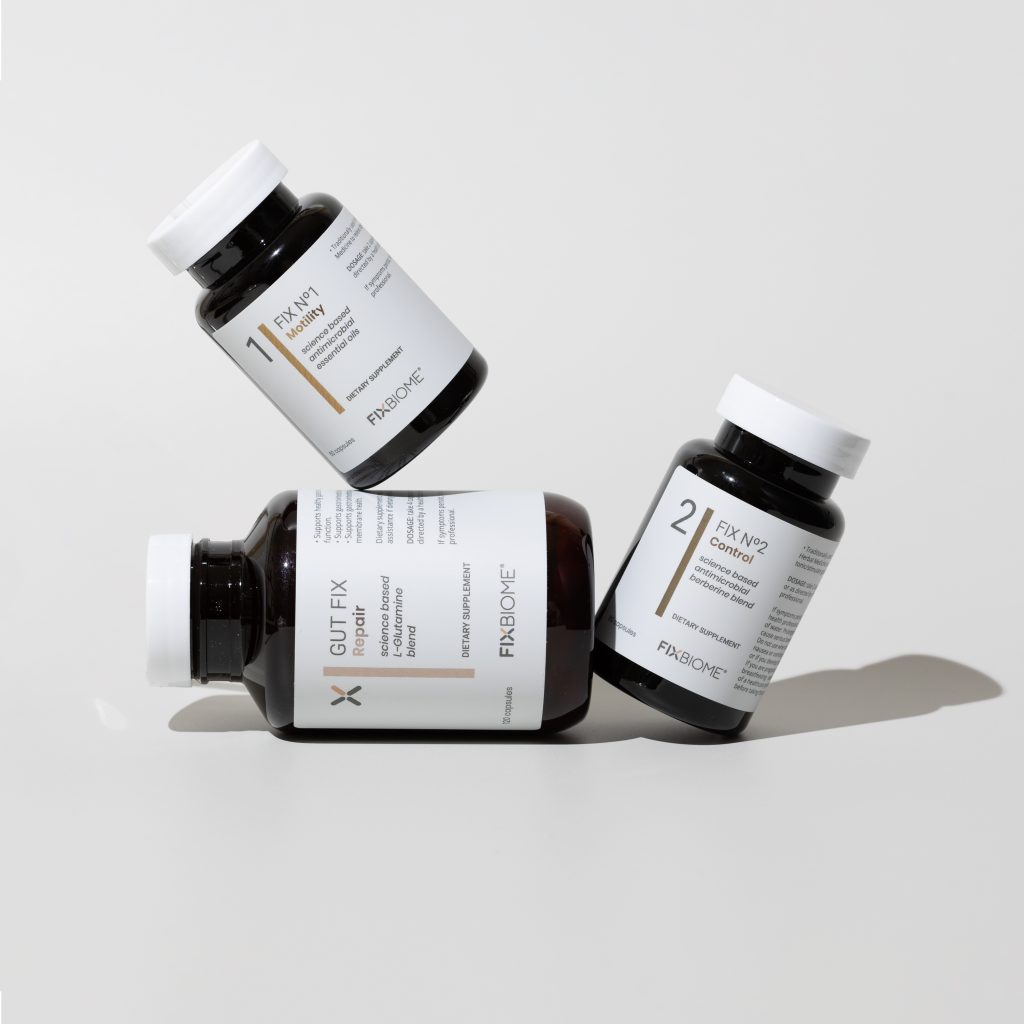Basics
Biofilms in the gut
What are biofilms, and what do they mean for your gut health?
Biofilms are slimy, sticky layers of bacteria that adhere to surfaces inside the gut. They can form anywhere in the digestive tract but are particularly common in the small intestine. Biofilm busting abilities are essential for products designed to treat SIBO, as biofilms can protect bacteria from eradication. In this blog, we will discuss what biofilms are and why they are important for gut health.
Microorganisms are everywhere – not just in nature but in the human environment, too.
You may not realise it, but your body is home to trillions of microorganisms. In fact, it’s estimated that there are roughly ten times more microbial cells in the human body than human cells! Most of these microbes live in harmony with their human hosts, but some can cause disease. Microorganisms take over different ecological niches in the human environment, just as they do in nature. One type of microorganism community common in the human body is known as a biofilm. Biofilms are composed of many different kinds of bacteria and can be found on surfaces throughout the body, including the digestive tract. These communities play a crucial role in protecting us from harmful microbes. However, they can also cause problems when they become imbalanced.
What are biofilms?
Our gut is home to a large and diverse population of microbes, which play an essential role in our health. One way that these microbes help us is by forming biofilms. Biofilms are communities of bacteria that are surrounded by a protective slime layer. This slime layer helps to protect the bacteria from harm and provides a surface for them to attach to. Thus, biofilm provides a protective barrier against harmful bacteria and other invaders. Biofilms can be found on many different surfaces, including the human gut. In the gut, biofilms help protect the bacteria from the acidic environment and from being flushed out by the movement of the intestines. In addition, biofilm helps to trap nutrients and moisture, which can support the growth of beneficial gut flora.
Why does the gut have biofilm?
While biofilm is generally beneficial, it can become problematic in certain situations, such as when harmful bacteria is overgrown. Overgrowth can occur when there is an imbalance in the gut microbiota or when the conditions are favorable for bacterial growth (such as low stomach acidity or slowed gut motility). When biofilm becomes packed with harmful bacteria, it can break down and release toxins into the bloodstream. This process is known as dysbiosis.
What happens when biofilms become problematic?
Dysbiosis is a term used to describe an imbalance in the biofilm community. This can happen when the biofilm becomes too dense or when harmful bacteria start to dominate. Dysbiosis can lead to a variety of health problems, including gut infections. Gastrointestinal (GI) infections are a prime example of what can go wrong with dysbiosis. In fact, about 80% of all GI infections are caused by biofilm-producing microbes. SIBO is one type of biofilm infection that can be particularly serious. SIBO stands for small intestine bacterial overgrowth, which occurs when bacteria start to grow out of control in the small intestine. SIBO can cause various symptoms, including abdominal pain, bloating, and diarrhea. SIBO is a serious condition that requires treatment. However, many SIBO treatments are ineffective in breaking down the biofilm and eradicating the bacteria. This is why products with biofilm-busting abilities are so crucial for SIBO sufferers.
Symptoms of biofilm overgrowth
Symptoms of biofilm overgrowth in the gut are often nonspecific and can include:
- abdominal pain
- bloating- diarrhea
- constipation- fatigue
- brain fog- joint pain
- skin problems (rashes, acne, eczema)
More specifically, biofilm can lead to nutrient malabsorption, gut inflammation, and alterations in gut microbiota. In addition, biofilm overgrowth has been associated with several systemic diseases, such as obesity, diabetes, and cardiovascular disease.
While more research is needed to confirm a causal link between biofilm and these diseases, the growing body of evidence suggests that biofilm may play a role in developing these conditions.
Treating biofilm overgrowth
Treatment for biofilm overgrowth typically involves a combination of antibiotics and natural substances that help to break down the biofilm. These natural substances, such as enzymes and herbs, are often more effective than antibiotics in treating biofilm-related infections. A SIBO product that contains a combination of natural ingredients and enzymes may be more effective in breaking down the biofilm and eradicating the bacteria than antibiotics alone. In addition, a SIBO product that contains probiotics can help to restore balance to the gut microbiota.
Why is treating biofilm overgrowth difficult with antibiotics alone?
Antibiotics are often ineffective in treating biofilm overgrowth because they cannot penetrate the slime layer. In addition, many antibiotics kill both harmful and beneficial bacteria, which can further disrupt the balance of the gut microbiota.
Biofilm-busting herbs
Some herbs are effective at reducing biofilm overproduction. Red thyme oil, oregano oil, sage leaf, peppermint oil, and lemon balm leaf extract are ingredients that can be found in naturally sourced products that offer a health benefit to those who often suffer from gastrointestinal issues such as bloating, gas, stomach pains, and cramping.
When these essential oils are formulated correctly, they work together to create a product that is stable and effective in maintaining gut health. Each ingredient has unique properties that work together to provide a soothing effect for those who experience discomfort due to gastrointestinal issues.
- Red Thyme oil has strong antimicrobial properties, which help kill off harmful bacteria or fungal overgrowth.
- Oregano oil has been found to have a broad spectrum effect that helps reduce bacterial overgrowth.
- Sage leaf contains anti-inflammatory properties and aids in the smooth functioning of the digestive system.
- Peppermint oil is an antispasmodic used to relieve any muscle spasms caused by gastrointestinal issues.
- Lemon balm leaf extract is gastro-protective, and its active ingredient has anti-inflammatory effects.
All these properties work together to create a product that is soothing and effective in maintaining gut health.
Supplements for biofilm overgrowth
Many different supplements on the market claim to be able to help with SIBO, but not all of them are backed by science. FixBIOME’s Fix 1 and Fix 2 are clinically proven to be effective in treating SIBO and other digestive issues like IBS, bloating, and stomach discomfort.

The bottom line
Biofilms in the gut are a normal and necessary part of a healthy digestive system. However, they become overgrown and can lead to SIBO and other gut-related issues. Therefore, it is essential to be aware of the signs and symptoms of overgrowth and to seek treatment if necessary. With proper management, you can maintain healthy gut flora and avoid the uncomfortable symptoms of SIBO. Additionally, there are natural ways to help control biofilm overgrowth, like FixBIOME’s Fix No1 – Motility and Fix No2 – Control. FixBIOME’s products are clinically proven to be effective in busting biofilm overproduction, treating SIBO, and restoring gut health.
The FixBIOME System
In need of a complete gut reset and repair after years of gut issues? Learn more about our gut recovery systems.
Over average 4.85 out of 5 based on verified customer feedback. Read all
Formulated with 100% clinically studied ingredients
Takes a science-based approach to gut health
Approved by doctors and naturopaths

- Fix your biome
- In 6-8 weeks
- Enjoy
